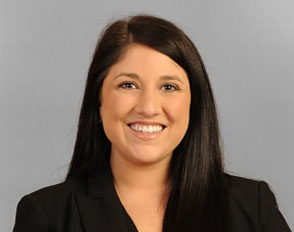HHS Proposes Changes to Confidentiality of Substance Use Disorder Patient Records
On August 22, 2019, the U.S. Department of Health and Human Services (“HHS”) issued proposed revisions to the Confidentiality of Substance Use Disorder Patient Records regulations.
Under the current regulations, substance-use disorder1 (“SUD”) patients can themselves decide who can examine their addiction treatment history, thereby preventing hospitals and health care professionals from assessing SUD patients’ complete medical histories and gaining a full comprehensive review of their patients’ prior treatments for addiction. These regulations were originally intended to protect against the misuse of treatment records against SUD patients and to “ensure that patients receiving treatment for a substance use disorder in a substance abuse program are not made more vulnerable to investigation or prosecution because of their association with a treatment program than they would be if they had not sought treatment.”
Recently, however, the nation has observed the devastating effects of substance abuse, and more particularly opioid addiction, resulting in alarmingly high rates of drug-related overdoses and deaths. In response to the growing opioid epidemic, HHS issued several proposed revisions to reduce barriers to care coordination for patients with SUDs by (i) allowing non-opioid treatment providers access to central registries, and (ii) permitting opioid treatment programs to disclose dispensing and prescribing data to prescription drug monitoring programs, while maintaining privacy safeguards for SUD patients.
Comments on the provisions of the proposed rule are being accepted by HHS until Friday, October 25, 2019, at 5:00 p.m.
Please consult with Rebecca J. Maziarz, Jeffrey R. Hantz, or Gabrielle M. Carbonara with Dickie, McCamey & Chilcote, P.C. They can answer any questions about how these proposed revisions may apply to your business.
 Rebecca J. Maziarz 412-392-5642 rmaziarz@dmclaw.com |
 Jeffrey R. Hantz 412-392-5264 jhantz@dmclaw.com |
 Gabrielle M. Carbonara 412-392-5321 gcarbonara@dmclaw.com |
Ms. Maziarz was the Director of Medical Information Management for two Western Pennsylvania hospitals and one in West Virginia. Additionally, she served as a Long Term Care Consultant to area nursing homes. Her background in the healthcare industry provides clients with an invaluable resource and unique perspective into the ever-evolving healthcare landscape.
__________________________
1According to the HHS proposal, substance use disorder is defined as “a cluster of cognitive, behavioral, and physiological symptoms indicating that an individual continues using a substance despite significant substance-related problems such as impaired control, social impairment, risky use, and pharmacological tolerance and withdrawal.”
